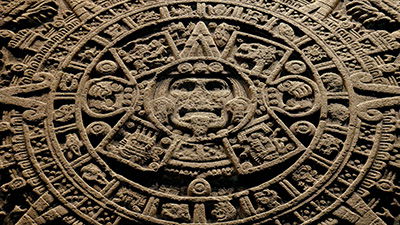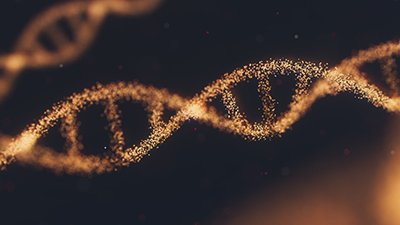Ultrafast Parasite Evolution
Bird parasite said to “evolve” rapidly while losing information.
News Source
- SOURCE: “Physorg: “Deadly Bird Parasite Evolves at Exceptionally Fast Rate” ”
A bacterial infection common to poultry has, according to a study published in PLoS Genetics, changed hosts through “ultrafast evolution”1 and loss of a “chunk of its genome.” Mycoplasma gallisepticum causes respiratory disease in chickens and turkeys. In 1994, it began devastating the North American wild house finch population by causing a deadly eye-infection. The disease spread rapidly between 1994 and 2007, killing “hundreds of millions of birds.”
By sequencing genomes of the present bacteria as well as those known to cause infection in the past, scientists hoped to discover how the bacteria “gained the ability to spread to house finches—which diverged from chickens and turkeys some 80-90 million years ago” as well as how it became so virulent so quickly. ”It's evolving anywhere from ten to 100 times faster than previous estimates for any other bacterium,” says first author Nigel Delaney.
The new form of the bacteria has not acquired any new information. The researchers report, “we failed to find a single novel gene in House Finch MG that was not also found in the poultry MG strains.”2 Instead, the bacteria has lost over 50 genes. Mycoplasma gallisepticum only has about 1,000 genes in its genome. “One of the main functions [of the genes that were lost] is to help guard Mycoplasma against the attacks of bacteriophages,” according to co-author Scott Edwards. Bacteriophages are viruses that invade bacteria.
The researchers have not yet determined how this bacteria became more contagious, but they do express surprise at the “short evolutionary time scales”3 of this change, noting new techniques are allowing them to “measure evolution on very short time scales,” tracking it in “real time.”
This genetic variation allows the bacteria to infect a wider range of hosts—good for the bacteria, bad for the hosts.
While the researchers call this change in the virulent pathogen “evolution” and marvel at its rapidity, we must point out that the bacteria, Mycoplasma gallisepticum, was a bacteria when it infected only poultry and is still the same “kind” of bacteria now that it infects finches. Not only has it not obtained information to become a new kind of organism, it has lost some of the genetic information it had. Microorganisms frequently transfer genetic information horizontally. That is one of the ways they vary and adjust to their environment. This genetic variation allows the bacteria to infect a wider range of hosts—good for the bacteria, bad for the hosts.
Furthermore, the notion that finches and poultry diverged from a common ancestor millions of years ago is based on molecular clock calculations. Read more about the unverifiable assumptions and the statistical manipulation involved in genetically “clocking evolution” in “Researchers Devise Alternate Theory For Cambrian Explosion” and “.”
It will be interesting to discover more about the functions of M. gallisepticum’s lost genetic material, but we should not consider this discovery evidence for molecules-to-man evolution, either fast or slow. The study does track observational changes in bacteria in “real time,” but these changes have nothing to do with molecules-to-man evolution or evolution over millions of years. Giberson and Collins echo many evolutionists when they write, “Macroevolution is simply microevolution writ large: add up enough small changes and we get a large change.”4 But there is a fundamental difference between acquiring genetic information to become a new kind of organism and just varying within the created kind. What did these bacteria rapidly evolve into? Just more of the same kind of bacteria—“mutant bacteria with a loss of pre-existing genetic information.”5
God provided the ability to vary when He created living things to reproduce after their kinds. Thus, in this sin-cursed world, we should not be surprised to see bacteria change hosts and increase their ability to cause disease because the genetic tools God gave microbes in order to survive in the original good world get perverted to cause harm.
Further Reading
- Observation of Evolution in Bacteria
- The Role of Genomic Islands, Mutation, and Displacement in the Origin of Bacterial Pathogenicity
- A Creationist Perspective of Beneficial Mutations in Bacteria
- Toward an Accurate Model of Variation in DNA
- I Don’t Believe in Mutations?
For More Information: Get Answers
Remember, if you see a news story that might merit some attention, let us know about it! (Note: if the story originates from the Associated Press, FOX News, MSNBC, the New York Times, or another major national media outlet, we will most likely have already heard about it.) And thanks to all of our readers who have submitted great news tips to us. If you didn’t catch all the latest News to Know, why not take a look to see what you’ve missed?
(Please note that links will take you directly to the source. Answers in Genesis is not responsible for content on the websites to which we refer. For more information, please see our Privacy Policy.)
Footnotes
- Nigel F. Delaney et al., “Ultrafast Evolution and Loss of CRISPRs Following a Host Shift in a Novel Wildlife Pathogen, Mycoplasma gallisepticum,” PLoS Genetics, February 9, 2012, doi: 10.1371/journal.pgen.1002511.
- Ibid.
- Ibid.
- K. Giberson and F. Collins, The Language of Science and Faith: Straight Answers to Genuine Questions (Downers Grove, Illinois: InterVarsity Press), 45.
- Georgia Purdom, “Observation of Evolution in Bacteria,” Answers in Genesis, January 31, 2007, https://answersingenesis.org/natural-selection/antibiotic-resistance/observation-of-evolution-in-bacteria/.

Answers in Genesis is an apologetics ministry, dedicated to helping Christians defend their faith and proclaim the good news of Jesus Christ.
- Customer Service 800.778.3390
- Available Monday–Friday | 9 AM–5 PM ET
- © 2026 Answers in Genesis




